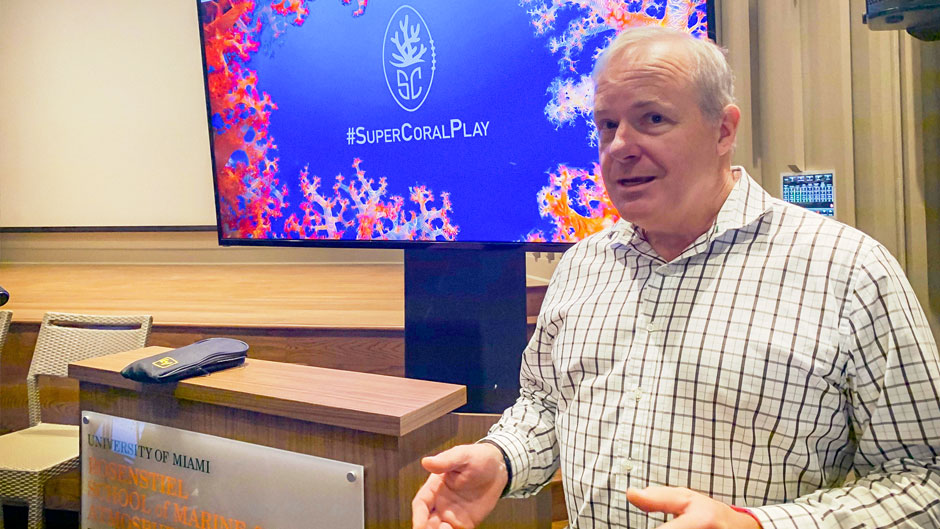VIRGINIA KEY, Fla. — Call them super corals—coral reefs so strong and resilient they can survive mass bleaching events and diseases that destroy weaker corals.
“Even among the more sensitive species, you’ll find corals with different genotypes that are robust,” said Chris Langdon, a coral reef expert at the University of Miami’s Rosenstiel School of Marine and Atmospheric Science.
Found in waters around the world—from Florida and the Bahamas to the Caribbean and the western Pacific—these so-called super corals could be the saviors for the planet’s dying reefs.
And now, a new campaign led by the private, nonprofit MSC Foundation—and themed around this year’s Super Bowl—is raising awareness not only about the importance of these resilient corals but also about the critical steps partners like the University of Miami, Nova Southeastern University (NSU), the Super Bowl Host Committee, and some 54 current and former NFL players are taking to save coral reefs.
#SuperCoralPlay will combine awareness and outreach with research to shift the game on coral. “Coral reefs are important not only economically but also from an ecological point of view,” Roni Avissar, dean of the Rosenstiel School, said Thursday from the University of Miami’s marine campus on Virginia Key, where MSC Foundation officials, University researchers, and others gathered to officially launch the campaign.
“It truly takes a village to understand what a coral reef provides ecologically,” said Avissar, noting that they help protect coastlines from the damaging effects of storms and provide shelter for a myriad of marine life.
Yet coral reefs around the world are in peril, Langdon said at the news conference. “Populations of corals are in steep decline,” he reported. “The Great Barrier Reef, from 2017 to 2018, lost between 20 percent and 50 percent of its corals, and Florida reefs are in greater danger, experiencing a 90 percent decline since the 1970s.”
While two exceptionally warm summers are the culprits for declining coral colonies on the Great Barrier Reef, excess nutrients, pollution, overfishing, sediment runoff, hurricanes, and bleaching are to blame for coral losses in Florida.
“And it’s the outbreak of disease that follows that’s actually responsible for most of the mortality of corals in Florida,” said Langdon, a professor of marine biology and ecology. Curbing CO2 emissions can help, “but progress in that area has been frustratingly slow,” he added.
Reef restoration—growing corals in protected areas and then outplanting them to offshore reefs decimated by disease—has proved successful around the world, Langdon said.
As part of the #SuperCoralPlay campaign, Rosenstiel School and NSU researchers and students will collaborate on future coral reef restoration and educational projects at MSC Cruises’ private island in the Bahamas, Ocean Cay.
Students, according to Langdon, will live on the island, screening for corals that are climate hardened and that will eventually be outplanted.
“They’ll breed faster and spread their superior genes throughout other populations, mixing with existing corals,” he said.

